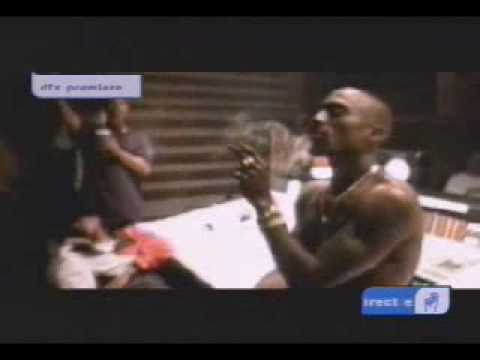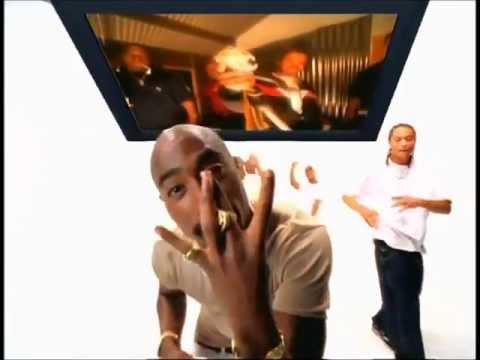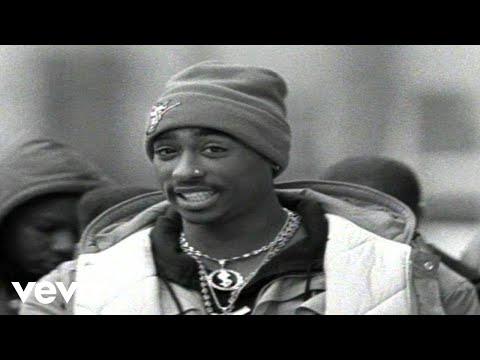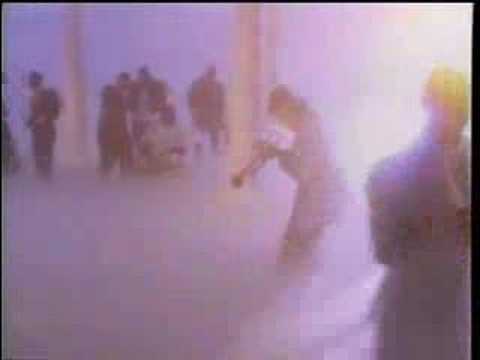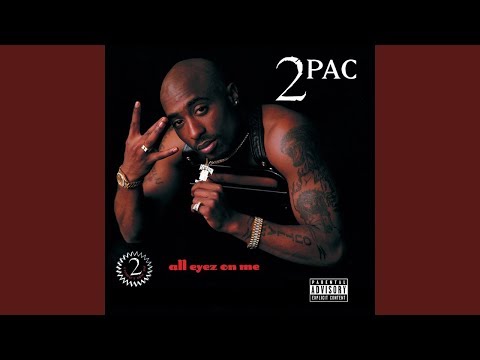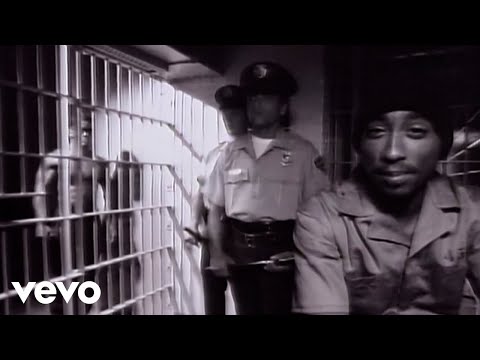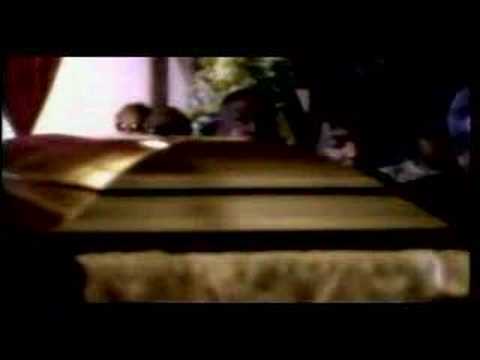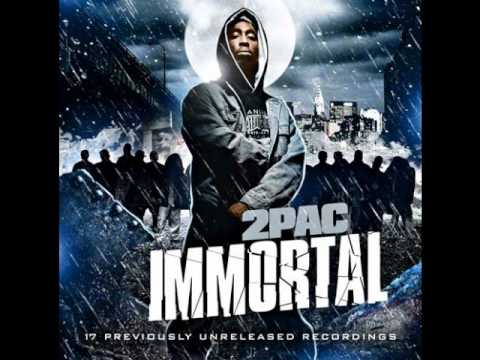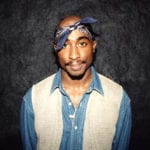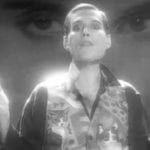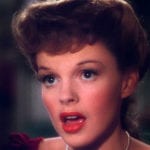This is a song uniting despair and hope. Tupac goes to a great length to pay homage to all his friends doing time or killed. He overtly makes it sentimental, pouring out all his emotions in the track. As the song’s title suggests, Pac suggests that it is the best for everybody to move on but not forget the past, as some of the memories you form are indelible. Perhaps, this is the best example of Pac’s realism; living through his own struggles, even immersing himself and identifying with the struggles of others; but quietly moving on at the same time, expecting better days to follow. This is only one of the very few of his hit songs in which he sings the chorus; which isn’t normally an attribute of Pac’s songs.
For his last album before his death, Pac had changed his stage name to Makaveli, and hence Makaveli raps this song. The album though released posthumously, was finished before Pac’s demise and it features this gem. The song is distinguished for its straightforward intro and outro. The intro blurts out what every critic judging a rap song had always wanted to say. You wonder how Makaveli will combat the overly simplified allegations, and so he starts talking about what he explains best, hardship. And even within that realm of poverty and crime, he raps about his success and the general California rap scene, mentioning some other cliques. The outro contains a playful slant at Dr. Dre, claiming that this song is “California Love” part 2 without his services. (Not his exact words, listen to the track to find out). And I tend to agree, this was a better and more hardcore song than the more famous “California Love”; just the way Pac liked it.
Tupac was a social activist, no doubt, but a true Pac aficionado would never dream of leaving this song out. The matter of fact is, Tupac could be mean if he wanted to, and though the escalation of feud with fellow rapper Biggie was unnecessary, even mislead, you cannot withhold credit from the man who created what many rap critics consider the best diss track ever. (A slant track) The chorus is extremely catchy, and you also get to hear the remarkable talents of the rap group “Outlawz” a brainchild of Pac’s. Also, be sure to check out the very militant “Letter to the president” to get a sense of what Tupac and Outlawz could do together. Everybody is straight to the point, mercilessly using their words to tear apart Biggie and his east coast clique. If there was ever a pinnacle moment during the rap coastal rivalry, this was it. And from a marketing point of view, Tupac might have had the right idea, using controversy to sustain fame for both sides, elevating the commercial potential of the rap game. But this was no act, Pac was dead serious.
“Brenda’s got a Baby” reflects a strong cornerstone of Tupac’s rapping theme, i.e., social injustice. It is a wonderful piece because of its specificity. While the best of rappers, Tupac included, usually don’t stick to a story in their verses, incorporating many themes at once, “Brenda’s got a baby” is different. It solely sticks to the 12 year old Brenda and her struggle with pregnancy, violence, misjudged love and finally prostitution. Tupac is very unselfish in highlighting Brenda’s woes only, not mentioning himself once in the song. The song’s structure is atypical, with one big verse from Pac stacked between the intro and outro. There is no defined chorus. Watch this video on YouTube
This is lovely piece on camaraderie by Tupac. He is reminiscent about his life, describing a whole series of activities he used to do with his friends, mentioning a friend who had converted to Islam and turned his life around, leaving the drug game forever. The chorus implies that Pac might be holding a grudge, but the truth is that there is no hint of such feelings throughout the whole song. It was intended to be a melancholic piece, more about missing out on friendship. It’s just Pac intending to state how some childhood friends had now strayed apart, doing their own thing, managing their own individual lives. It is definitely a very soothing track, the chorus and verses combined providing a very calming effect.
Tupac might have done more than any other music artist to raise awareness on the plight of women in society. With songs like “Brenda’s got a Baby”, and “Dear Mama” which was an ode to his mother, Pac had a knack for creating hits with social awareness songs; very hard to imagine these days as the majority of hits are dance anthems. While I’m no fan of reiterating themes, “Keep ya head up” has to be included for its sheer popularity amongst fans despite propounding the same message in “Brenda’s got a Baby”, just in a wider context. While the underlying message of the lyrics is for men to respect women more, and women staying robust amidst all the unfairness; the inspiration the song provides it uniquely unisex. Both male and female Pac fans rejoice the added motivation it gives to face and deal with all obstacles.
This song is great because it is a fine blend of the good and bad in Pac’s life and thoughts. While a majority of his songs are contemplative and lean more towards the darker things in life, Pac really lavishes it out in this piece enjoying himself, while reminding us that with the fame comes problems. A great part of the song is sexual in nature, Pac obviously reaping the benefits of easy philandering which comes with being a major hip hop superstar. And yet because of his unique recitation styled prose, not enunciating all the syllables, zipping through the words while keeping his flow at a medium pace; this song like many of his others still has an eerie pious feel to it, as if coming from scripture.
There are some who say Tupac relied heavily on mysticism and poetic abilities for songs, and that his flow wasn’t the coolest. This song begs to differ. 2pac annihilates each of the three verses in a song which basically deals with police brutality. The chorus is kept very simple, and yet is melodious. The verses are more upbeat than usual, and Pac somehow manages to make it not seem like a sulking case and rather talks about such a grime topic in a lighthearted way, poking fun at the law enforcement’s hypocrisy. He seems to take the upper hand through his verses, mocking the whole penal system, treating it like a cat and mouse game. Watch this video on YouTube
“Shed So Many Tears” is Tupac’s most haunting song. He slowly builds on his prophetic doomed end in the three verses, and seems to accept his fate wholeheartedly as if he already has crossed the point of no return. The instrumental of the chorus is made very melodic with a harmonica sample from Stevie Wonder’s “That Girl”, and Pac’s verses tell a tale of grave insecurities but also surprisingly a calming solace which can only come with the true admittance of one’s mistakes, circumstances and ultimately death. The chorus itself is about others, i.e mourning the loss of his close friends, but makes no mistake; the verses are about him. He is very successful in expressing the feeling of too little, too late. But strangely, you also seem to be happy for him, feeling he has suffered enough, such is the suggestive power of this song.
Considered one of the greats, if not the greatest Tupac song. Most of you are familiar with the later version released in 98, which really isn’t a problem as the difference is minimal and can be disregarded altogether. “Changes” deals with societal injustice and poverty. Pac raps about the pent up anger and frustration, and the song also contains a huge element of inexplicable grief with its chorus stating “things will never be the same”. The chorus is soulful, but is kept relatively austere as with most of choruses of Pac’s songs; maybe done intentionally to keep the messages and clean and effective. Most importantly, the song calls for change to come within you much like MJ’s “Man in the mirror”. Pac only blames the system a couple of time, and the rest of his lyrics function as wake up call to get more educated about the important issues and to show more empathy to fellow human beings. A truly touching rap song which sticks to you for a very long time.
